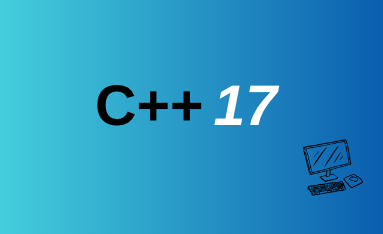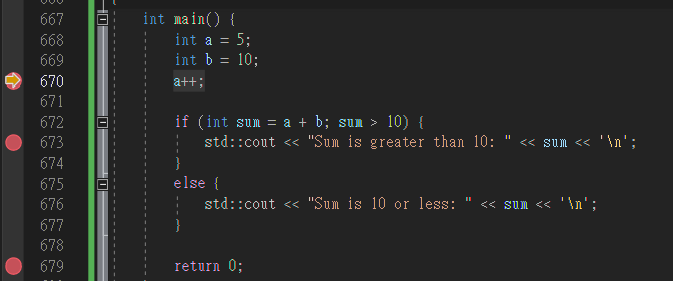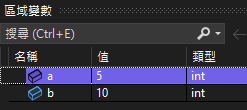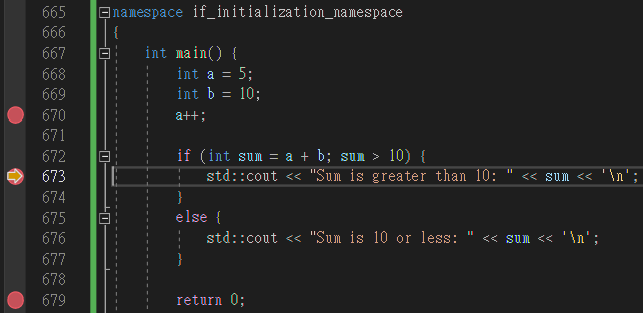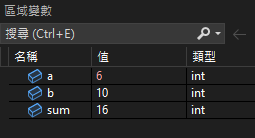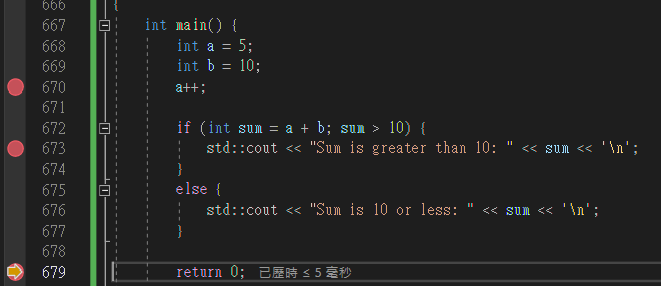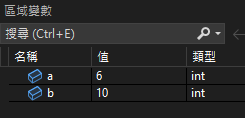if 語句中的初始化
功能如同標題,這篇比較簡單,C++17 引入了一項新特性,即在 if 語句中進行初始化。 這使得我們可以在 if 語句中同時聲明並初始化變量,並將其限制在 if 語句的作用域內。 這樣可以使代碼更加簡潔,並避免了變量泄露到更大的作用域。
語法 C++17 中,if 語句的語法可以寫成如下形式:
1
2
3
4
5
6
if (init_statement; condition)
{
// code block
}
來看以下例子就更清楚了
開檔時的檢查
1
2
3
4
5
6
7
8
9
10
11
12
13
14
#include <iostream>
#include <fstream>
int main() {
if (std::ifstream file{"example.txt"}; file.is_open()) {
std::cout << "File opened successfully." << '\n';
} else {
std::cout << "Failed to open the file." << '\n';
}
return 0;
}
指標檢查
1
2
3
4
5
6
7
8
9
10
11
12
13
14
#include <iostream>
int main() {
int x = 10;
int* p = &x;
if (int* ptr = p; ptr) {
std::cout << "Pointer is valid and points to: " << *ptr << '\n';
} else {
std::cout << "Pointer is null." << '\n';
}
return 0;
}
數學計算
1
2
3
4
5
6
7
8
9
10
11
12
13
14
15
#include <iostream>
int main() {
int a = 5;
int b = 10;
a++;
if (int sum = a + b; sum > 10) {
std::cout << "Sum is greater than 10: " << sum << '\n';
} else {
std::cout << "Sum is 10 or less: " << sum << '\n';
}
return 0;
}
看一下中斷點及區域變數 以下共有3個中斷點,
區域變數此時還沒有 sum
區域變數 sum 出現了
離開 if scope sum 消失了
